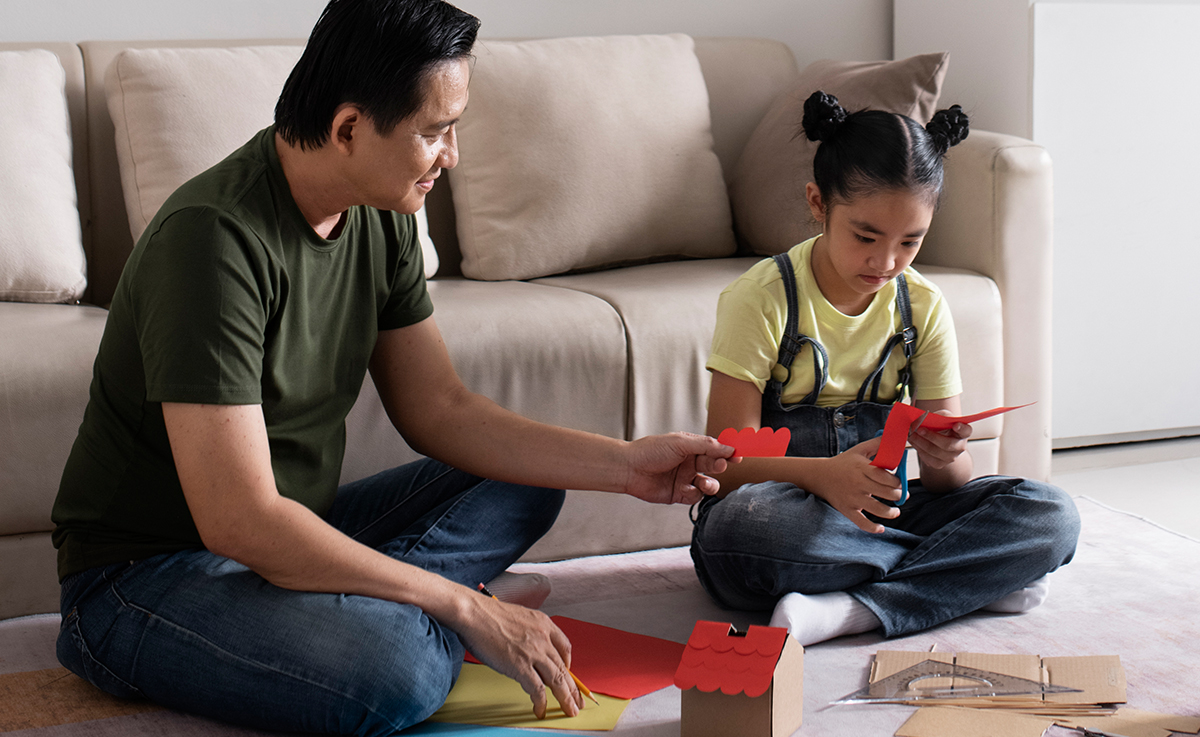Children are more likely to prosper in a learning-friendly environment because they feel encouraged to realise their greatest potential. Children have an easier time achieving success in the outside world when they grow up in loving, supportive, and stimulating settings.
According to research, a child’s brain develops more easily in an atmosphere that supports early learning. Eventually, in life, this extends to additional learning disciplines. In this age of digitization, children need a caring atmosphere rich in resources, space, love, devotion, patience, and support to boost their sense of security. What can you do, then, at home to facilitate your child’s experience?For advice on how to create a conducive learning atmosphere at home, keep reading.
Offerlove, support, and attention!
To flourish in society as a whole, children need to feel a sense of self and belonging. Simply said, learning cannot take place without these two basic emotional demands being addressed. No youngster can thrive if they don’t feel loved and acknowledged. Children can acquire the self-motivation they require for learning by feeling secure from enthusiastic parents and a supporting, loving household.
Creating a designated learning space!
Establishing a quiet, pleasant area specifically designated for studying is crucial. This entails having a specific place for supplies and books, as well as ensuring the table and chair are comfortable. Parents should also make sure to have some educational games and resources like activity books and puzzles available for their kids.
Follow a routine!
Creating a positive learning environment requires sticking to a good routine. Children are less anxious about what will happen next when they are aware of what to anticipate. This enables kids to feel secure and open to learning in their environment. A child’s behaviour typically improves when a routine is in place because routines provide structure and a sense of control. When something is done on a daily basis without feeling challenged or worried about it, people are more likely to embrace it.
Promote independence!
By assigning suitable tasks, you may foster a trustworthy, stimulating atmosphere where your child feels supported and understands what is expected of them. It’s simple to get caught up in desiring to do everything for them, but if you want the best for them, resist the urge to help them with tasks that they are capable of handling on their own. The best method to encourage independence as kids get older is to do this.
Make sleep a priority!
Receiving adequate sleep is one of the most important learning aspects. Teenagers need between eight and ten hours every night of sleep, while children under 12 years old need twelve hours. A healthy amount of sleep not only keeps people from getting exhausted, which makes it difficult to operate and retain knowledge, but it also aids in the processing of recently learned material and prepares people for fresh learning the following day.
Be attentive and involved!
Children may feel disregarded, overlooked, and uninterested in learning when parents are not paying attention to them. During their early years of life, children need your undivided attention. When your kids ask you to make things with them, play a game, read a book, or help with assignments, all other tasks can wait. Build memorable moments with your child at any time you can by being present and in the moment. This is crucial for their future achievement in learning as well as for their general well-being.
Parents, in our opinion, are crucial in fostering a conducive learning atmosphere at home, according to the Thakur School of Global Education. Parents may therefore cultivate an environment that will nurture success, progress, and confidence with our assistance and by investing in their children’s education!





